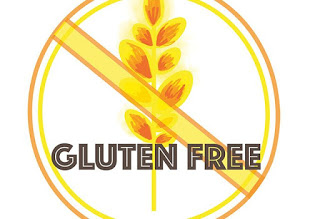
[dropcap][/dropcap]A recent survey conducted by Safefood revealed that 92 per cent of consumers of gluten products did not have a gluten related disorder or coeliac disease.
Globally, the market for such products is predicted to reach 43.65 US dollars by the year 2027. The unprecedented surge in interest for these products is believed to be largely fuelled by those who believe that a gluten-free diet can be a weight-loss method.
It is the people who ask for gluten-free pasta in busy restaurants before complaining about the lack of a garlic bread basket that fuels this industry and also risk distracting from the seriousness of the everyday struggle of a person living with coeliac disease or those with a severe intolerance to the stretchy protein.
Up until recent years, searching for gluten-free products meant a trip to the pharmacy or the local health store. Now, entire aisles of Irish supermarkets are dedicated to such products.
Some researchers credit modern Ireland’s difficult relationship with gluten to a sudden change in the diet of our ancestors. Studies by Associated Professor of Biochemistry and Director of Microscopy at University College Cork, William Reville, report that wheaten bread only became an Irish household staple after the Famine.
Oats and potatoes are traditionally what Irish stomachs would have been accustomed to before a sudden change led our diet to become far more like that of other Western societies. Gluten is a relatively new phenomenon in our everyday lives.
The method in which our bread is made has also changed dramatically. The early sixties saw the end of hours spent slaving over a stove and the introduction of sliced pans, mass production and a quicker, cheaper process.
Regardless of the reasons, the need for gluten-free products in our food market is clear and the rewards for the companies that vow to include those who exclude gluten are clear to see.
Celebrities and social media influencers alike have promoted the gluten-free diet as the diet to end all the diets, the ultimate solution to all of your problems that you can use to write several cookbooks and multiple witty tweets.
Miley Cyrus declared that “Gluten is crapppp anyway” and Katy Perry dedicated “The One That Got Away” to the gluten-filled pizzas she would never get the chance to taste in her third concert tour.
The Kardashian family of influencers had their say with Kourtney expelling all products containing gluten from her household in 2016. “I have always felt fine before when eating dairy and gluten, but I do believe that we have one life to live and I would like to live it feeling my best.”
Well-meaning celebrity comments run the risk of a medically advised diet becoming labelled as a “fad” diet popular among millennials. An added concern for those with a life-long disease where consumption of gluten damages one’s intestines and leads to a higher risk of bowel cancer, infertility and malnutrition.
Carelessness can lead to cross-contamination. When ordering a gluten-free sandwich in a café, the now-standard question is asked: “Are you a coeliac?” If the answer is yes, separate utensils are used, plastic gloves are changed, care is taken to ensure the customer does not become unnecessarily ill.
This question is a welcome addition in the quest to distinguish those who choose not to consume gluten by choice from those who do not consume gluten through medical necessity.
Paul Stenson of The White Moose Café in Phibsborough exasperated by “guests following a gluten-free fad”, famously announced that the café’s gluten-free food would no longer be served to those that did not present a doctor’s note.
Bord Bia’s “A Consumer Insight into Gluten-Free in Ireland” report in 2017 compared the number of calories in gluten-free snacks on Irish shelves as akin to the number found in the standard chocolate bar.
Just because something is labelled as “gluten-free” does not mean it magically becomes a weight loss solution. Safefood found that three-quarters of all gluten-free snacks were also high in fat. Dr Andrew Chan of Harvard Medical School stated that “The promotion of gluten-free diets among people without coeliac disease should not be encouraged.”
Yet, our country rests in the middle of a worldwide scale. Francisco Manuel Ares Seijas has coeliac disease.
He recently moved to France from Spain and is appalled at the difference in the range of gluten-free products. “In Spain, we have a lot of gluten-free varieties. The difference is huge. Here you have to find it in the ingredients section but in Spain, there is a gluten-free label. And also in terms of fast-food – McDonald’s, Burger King, Domino’s Pizza etc.; they have gluten-free options.”
Gluten-free living as a lifestyle choice is a rising phenomenon not just unique to Ireland. Seijas mentions that a large number of Spanish people eat gluten-free products by choice rather than by necessity. “But mass media try to persuade these people not to consume gluten-free products because they can produce diabetes, which is false”.
When asked if these people are problematic to those that require to follow a gluten-free diet for medical reasons, Seijas replied – “The problem is manipulation and mass media.”
Yet, gluten-free fad diets and celebrity endorsement can certainly set a precedent of associating gluten-free diets with Instagram hashtags, difficult customers and the influence of American capitalist society.
The answer to a “sans gluten” request in France is often a quite blunt “Non”. The public perception does not immediately associate the request with a very real disease but rather a personal preference.
Breton Shanone Kurca-Lopes was surprised at the prevalence of gluten-free products in other Western states in comparison to her native country.
“I honestly am at loss in saying what could or couldn’t be gluten-free; I always used to believe it was a trend people were following because of celebs since I knew you couldn’t be “allergic” to gluten but then found out that you can be highly intolerant just as you can be lactose intolerant and now I feel for people who are because it’s crazy expensive in France for no valid reason.”
Researchers continue to investigate the long term side effects of excluding gluten from your diet. In the meantime, care should be taken to distinguish those who can have serious reactions to crumbs of bread from those who buy gluten-free pasta as a weight-loss tactic. While in an ideal world, everyone could enjoy a gluten-free lifestyle, preference should always be given to those who were born without the luxury of a choice and will forever be bound to one particular aisle of Tesco. Perhaps, products that are naturally gluten-free (rice, fruit, nuts) may be a healthier alternative to own brand cereal bars that are pumped full of sugar before being branded as gluten-free for all involved.
Roisin Cullen
Image Credit: Isabella Finn



